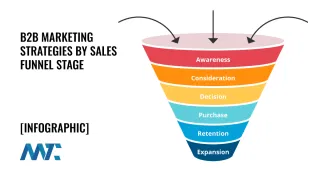The earliest stage of a lead in the modern marketing and sales funnel. These leads have demonstrated some level of interest in your business by engaging with top-of-funnel (TOFU) content—such as blog posts, educational guides, webinars, or whitepapers—but have not yet expressed specific buying intent. They are primarily seeking information, answers, or insights to help them understand a problem or explore a topic, often long before they’re ready to engage in a purchasing decision.
For business, marketing, and sales professionals, IQLs represent a critical opportunity to establish thought leadership, build trust, and nurture a potential future customer relationship. Rather than pushing a product or service too early, the objective at the IQL stage is to offer valuable, educational content that positions your brand as a helpful resource.
Characteristics of an IQL
- Top-of-Funnel Engagement: IQLs typically enter your ecosystem by downloading an educational asset, subscribing to a newsletter, attending an informational webinar, or interacting with awareness-stage content through organic search or social media.
- Low Intent, High Curiosity: These leads are in research mode. They may not yet have a budget, timeline, or authority to buy, but they’re exploring solutions or learning about challenges relevant to your space.
- Minimal Contact Information: At this stage, the information collected is typically limited to basic details such as name, email, and possibly company or job title, often gathered in exchange for access to content.
Why IQLs Matter in B2B Marketing
In a B2B environment, buying cycles are typically lengthy and intricate. By engaging IQLs early, marketers can build brand affinity and guide prospects through a nurturing journey, ultimately converting them into more qualified leads, such as MQLs (Marketing Qualified Leads) and SQLs (Sales Qualified Leads). Ignoring IQLs or trying to sell to them prematurely often results in lost opportunities and damaged credibility.
Best Practices for Engaging IQLs
- Provide Value Without the Pitch: Focus on delivering insights, frameworks, or educational material that helps them solve a problem or understand a trend.
- Use Lead Scoring Models: Track behavioral signals, such as repeated visits, content engagement, or email opens, to determine when an IQL is ready to advance to the next stage.
- Segment and Personalize Follow-ups: Utilize marketing automation to send targeted nurture emails tailored to their interests and behaviors, gradually introducing product-relevant content as needed.
Pro Tip: Don’t rush the relationship. The purpose of IQL nurturing is to transition from brand exposure to brand preference. Delivering consistent value over time creates trust, so when the lead is finally ready to evaluate vendors, your brand is top of mind.
Related Terms
- MQL (Marketing Qualified Lead): A lead that has shown signs of interest and engagement beyond basic information-seeking and is considered more likely to become a customer.
- SQL (Sales Qualified Lead): A vetted lead that meets criteria for sales outreach, such as budget, authority, need, and timing (BANT).
- TOFU (Top of Funnel): The earliest stage of the buyer journey, where IQLs typically exist, focused on education and awareness.
An effective lead nurturing strategy recognizes IQLs not as low-value contacts, but as the beginning of a longer relationship that—if handled properly—can lead to high-quality opportunities and long-term customers.
